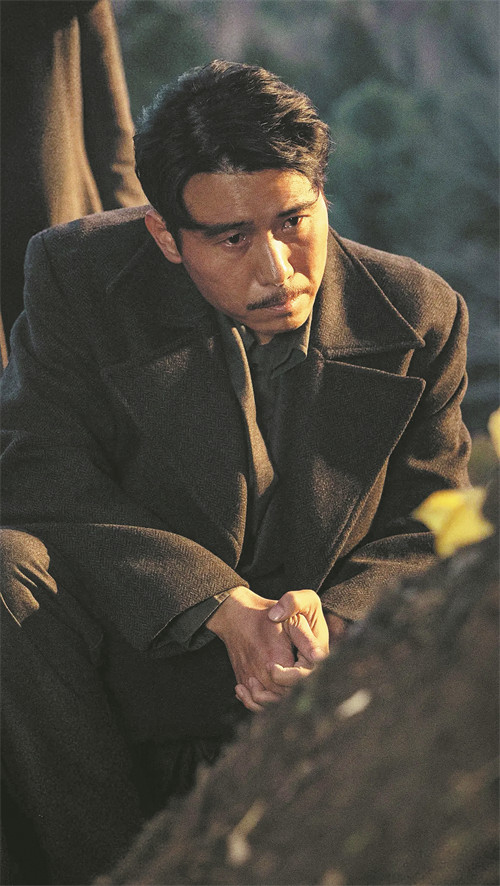
Stills from the TV series Gui Dui (The Long Way Back) feature actor Li Naiwen as the officer in a platoon which loses contact with the main force of the Northeast United Resistance Army. [Photo provided to China Daily]
A new TV drama revives the extraordinary endurance of China's Northeast United Resistance Army, Xu Fan reports.
In the snowy forests of Northeast China, a starving veteran soldier from the Northeast United Resistance Army stumbles forward, weakened by hunger. After days without food, he discovers livestock droppings in the snow. With trembling hands, he cracks them open, finds a few undigested corn kernels, washes them repeatedly with snow, and swallows them in order to survive.
This harrowing scene — based on a real-life wartime story — opens TV series Gui Dui (The Long Way Back), which has struck a chord with audiences. Since its premiere on Aug 25, the show has reached over 2.6 percent of all Chinese television subscribers and garnered 254 million clicks online.
Starring actors Hu Jun and Li Naiwen, the 34-episode drama commemorates the 80th anniversary of the victory in the Chinese People's War of Resistance Against Japanese Aggression (1931-45) and the World Anti-Fascist War.
The story begins in 1938, during a brutal campaign by the Japanese military aimed at severing all supply lines to the Communist Party of China-led Northeast United Resistance Army. Following a fierce battle, a platoon led by veteran soldier Lu Changshan (played by Hu) is separated from the main force. Reduced to only six survivors, they begin their epic struggle to survive, evade relentless pursuit, and make a desperate bid to reestablish contact with their comrades and the CPC.
Director Zang Xichuan recalled in a telephone interview with China Daily that the project was launched in 2021, as award-winning scriptwriter Gao Mantang had previously gathered a lot of firsthand information, including interviews with more than 30 veterans of the army, while creating My Natasha, a TV series about the romance between a Soviet female officer and a Chinese soldier.
Due to the Japanese army's campaign, which lasted three years, the Northeast United Resistance Army suffered catastrophic losses, with its membership plunging from over 30,000 to around 1,000. Furthermore, the winter in Northeast China was harsh, with wilderness temperatures that could drop to — 40 degrees Celsius. In July 1942, the remaining forces were compelled to retreat into the Soviet Union, where they were reorganized into the 88th Independent Infantry Brigade, an international unit of the former Soviet Union's Red Army.
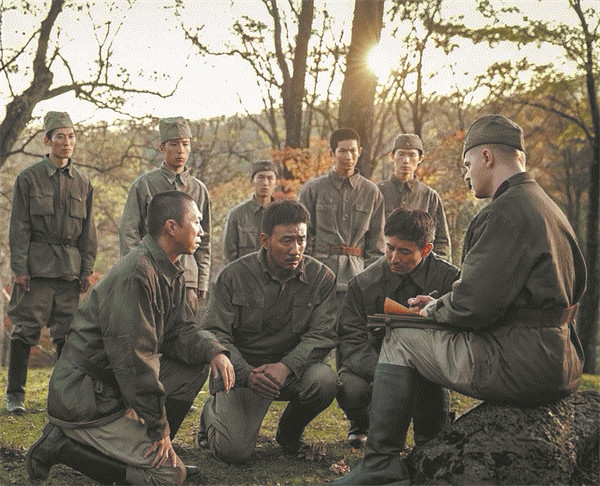
Scenes feature the platoon's members learning Russian from a translator in the Soviet Union. [Photo provided to China Daily]
"Although Gao had already written My Natasha, those conversations left him haunted by the hardships of the resistance fighters and this chapter of history. He always wondered what sustained the Chinese soldiers — what they carried in their hearts that enabled them to endure such brutal conditions and wait steadfastly for the final victory," says Zang.
A veteran filmmaker who started his career in 2000, Zang shot to fame serving as the deputy director of Zhang Yimou's martial arts epic Curse of the Golden Flower, accumulating more experience in directing his own programs, such as the award-winning movie The Donor, and the popular drama Endless Protection.
Despite having directed programs on a wide range of themes, Zang had never taken on a wartime story about the Northeast United Resistance Army.
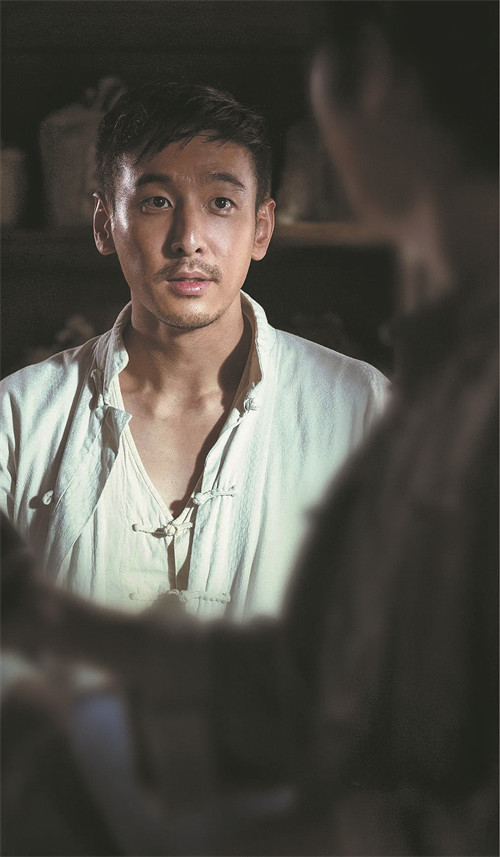
Stills from the TV series Gui Dui (The Long Way Back) feature actor Ren Bin as a soldier of the platoon. [Photo provided to China Daily]
"I first heard about the project at a gathering with friends. When I learned it was written by Gao, a scriptwriter I greatly respect, I asked the producer if I could read the script. It was so gripping that, once I started reading at noon, I couldn't put it down, and read straight through until 4 am," recalls Zang.
Eager to be part of the project, he volunteered to serve as director and quickly began mapping out the details of the shoot — from structuring the story around four parallel lines that follow different groups of separated soldiers in the platoon, to carefully selecting the cast.
Authenticity became his guiding principle. To reflect the hunger and deprivation, he asked both actors and extras to appear gaunt. Actor Hu, who plays the platoon leader, went on a strict diet and exercise regimen, ultimately losing 18.5 kilograms for the role.
In the drama, one pivotal scene features a towering pine tree, which serves as the long-awaited meeting point for the scattered soldiers. Zang recalls that the crew spent a great deal of time searching for the perfect location before finally finding one on a mountain in Baishan, Jilin province.
"Cars couldn't reach the peak, so we had to trek for about an hour through heavy snow to reach the highest point, where the pine tree stood. I wanted the audience to feel its symbolism. The pine tree, resilient against the cold, embodies the indomitable spirit of the Chinese soldiers," says Zang.
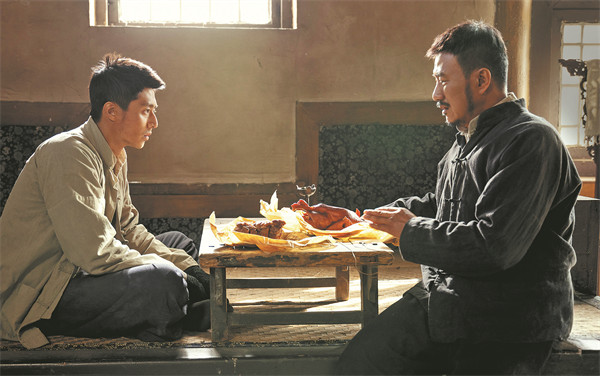
Scenes feature a soldier (left) reunites with his platoon leader after being separated from the main force. [Photo provided to China Daily]
Filming lasted more than three months, with the crew traveling across Liaoning and Jilin provinces to overcome a range of challenges — from training actors in horseback riding to shooting a river-crossing scene in late September, when the temperatures had already dropped.
"The fight of the Chinese people in the northeastern provinces against Japanese invaders lasted 14 years, making it one of the most brutal and enduring chapters of World War II. The Northeast United Resistance Army had no supplies and no reinforcements. They persevered out of a deep conviction to safeguard their country and their people," says Gao.
"We hope that by revisiting this heroic chapter through the experiences of ordinary soldiers, younger generations will connect with the sacrifices of the past. It is a history that should never fade from memory," he says with emotion.
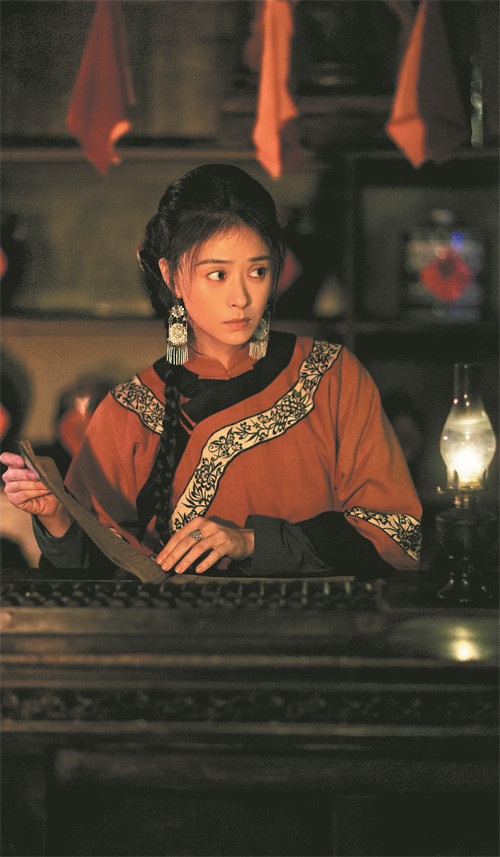
Stills from the TV series Gui Dui (The Long Way Back) feature actress Jiang Xin as a patriotic tavern operator. [Photo provided to China Daily]
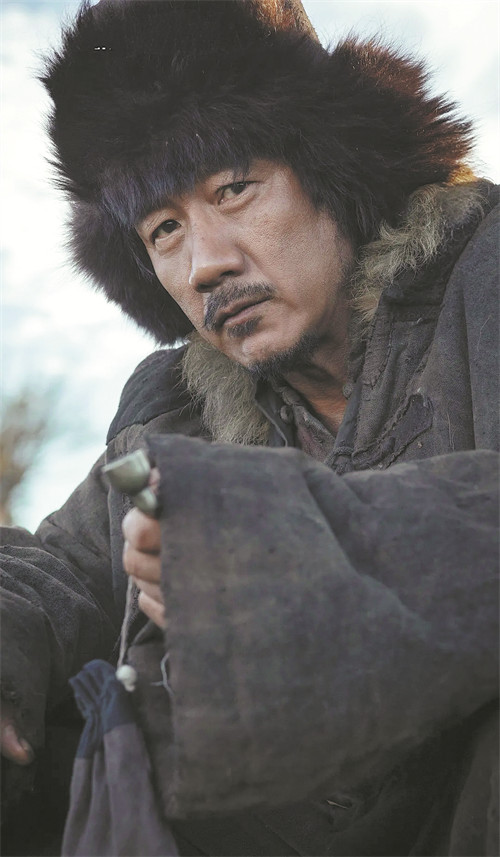
Stills from the TV series Gui Dui(The Long Way Back) feature the platoon leader played by actor Hu Jun. [Photo provided to China Daily]
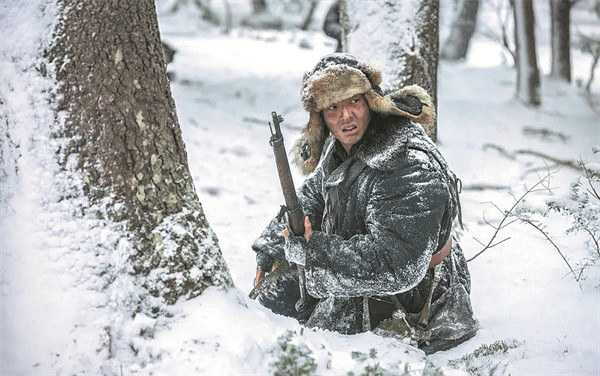
Scenes feature the soldier in a snowy forest. [Photo provided to China Daily]
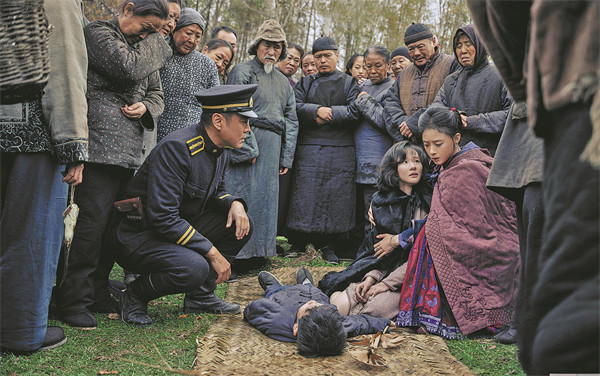
Scenes feature the young son of a platoon member killed by the Japanese army. [Photo provided to China Daily]
 Editor:Qiu Xiaochen
Editor:Qiu Xiaochen